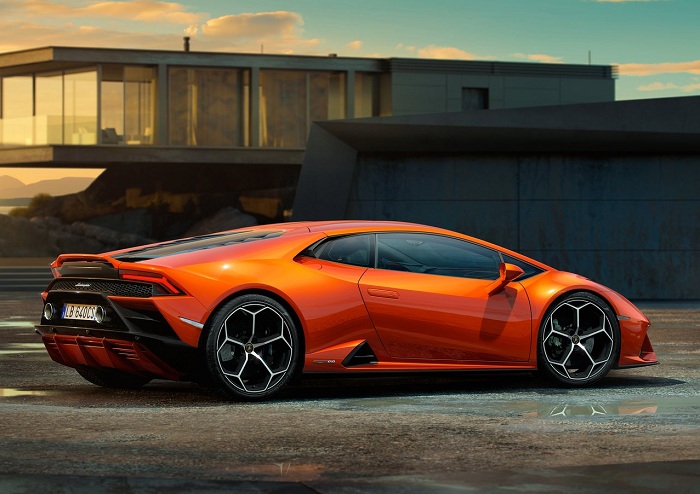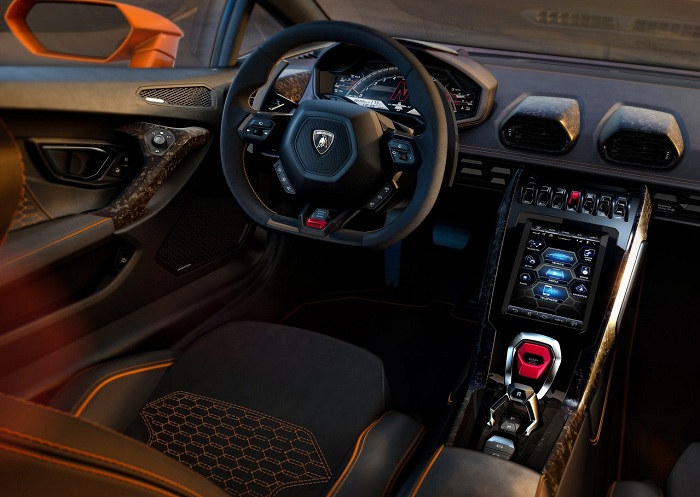Touted by company CEO and former Ferrari Formula 1 boss Stefano Domenicali as being a model that “redefines the segment parameter[s]”, the Evo distinguishes itself from the standard Huracan aesthetically by brandishing new front and rear bumpers, redesigned side air intakes, a body coloured rear diffuser, dual exhausts now relocated to either side of the number plate, a slotted rear spoiler and newly designed 20-inch alloy wheels wrapped in Pirelli PZero 245/30 rubber.

While the interior’s sole addition comes in the form of a new 8.4-inch infotainment system with Apple CarPlay and an optional rear view camera with a series of customisable options also available, the Evo’s biggest uptake comes in the fitment of Lamborghini’s Dinamica Veicolo Integrata (LDVI) vehicle dynamics system that controls the majority of its active characteristics such as the steering, all-wheel drive system, Magneto-Rheological suspension and rear-wheel steering.
Outfitted with the so-called ANIMA drive mode selector with three settings; Strada, Sport and Corsa, the Evo, as its name suggests, come powered by a more powerful version of the standard Huracan’s 5.2-litre normally aspirated V10, which also boasts titanium intake valves and a lightweight exhaust for an output of 470kW/600Nm.

Up 44kW/60Nm on the standard Huracan, the Evo will complete the 0-100km/h sprint in a claimed 2.9 seconds and reach a top speed of “more than 325km/h” despite weighing in at 1 422kg. As indicated, drive is routed to all four wheels via a seven-speed dual-clutch gearbox. Equipped as standard with carbon ceramic brakes, Lamborghini claims that the declaration from 100-0km/h takes 31.9m, while 0-200km/h is dealt with in nine seconds.
Sales of the Huracan Evo commences in the second quarter of 2019 with pricing in the United Kingdom starting at £165 256 (R2 924 744).
















